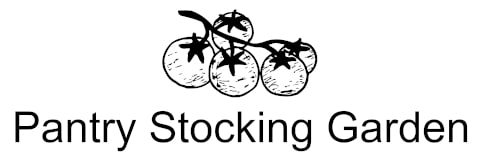There is almost nothing as rewarding as when you bring in some freshly harvested, home-grown vegetables from the garden. You know what you grow and how to grow it. Not it’s time to wash and enjoy raw, or in your cooking. Let us take a look at the best way to clean vegetables from the garden.
The best way to clean vegetables from the garden is to simply rinse them under running water and then soak it in vinegar and water solution. Baking soda and water solution also work well. Soak your vegetables submerged in the solution for 5-10 minutes so that all the bugs and pests hidden anywhere in the nooks and crannies die off and float on top. A recommended ratio is 1 part of vinegar and 3 parts of water. Or, 1 teaspoon of baking soda to every 2 cups of cold water. Rub off any dirt, or soil. After the soak, rinse the vegetables under cool running water. If no vinegar or baking soda is available, simply use salt mixed with water as your solution to wash vegetables in.
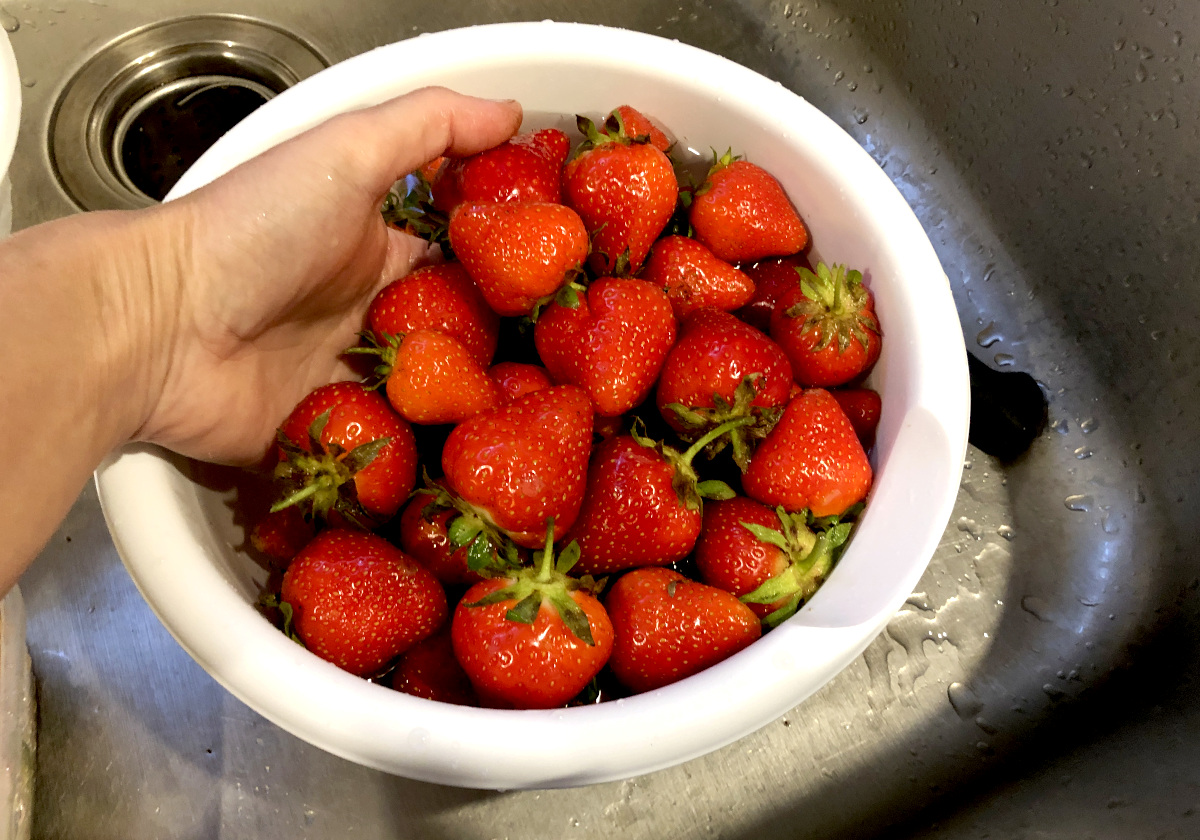
I never measure my vinegar or baking soda, I simply eyeball and when I am happy with the amount, then I soak my veggies. This is the baking soda I use to wash my vegetables in, to clean my household with, and to even use in baking. This baking soda is a bulk package of 15 lbs. that will last you for months and months.
TIP: Soak your veggies, herbs, and fruit not only to remove dirt and soil but especially to remove bugs that might be hiding anywhere in your veggies, herbs, and fruit. Soaking them ensures that the bugs get drawn and float on top of the water. Then you just scoop them out or discard them along with water.
Do you need to wash vegetables from your garden?
Yes, it is recommended to wash vegetables from your garden to wash off any harmful germs, residues from soil, dirt, and fertilizers, and to wash off any dead and still living insects and pests hidden in any nooks and crannies where they use to hide.
What can happen if you don’t wash vegetables?
According to CDC, sometimes raw fruits and vegetables contain harmful germs that can make you sick, such as Salmonella, E.coli, and Listeria. The safest produce to eat is cooked. The next safest is washed.
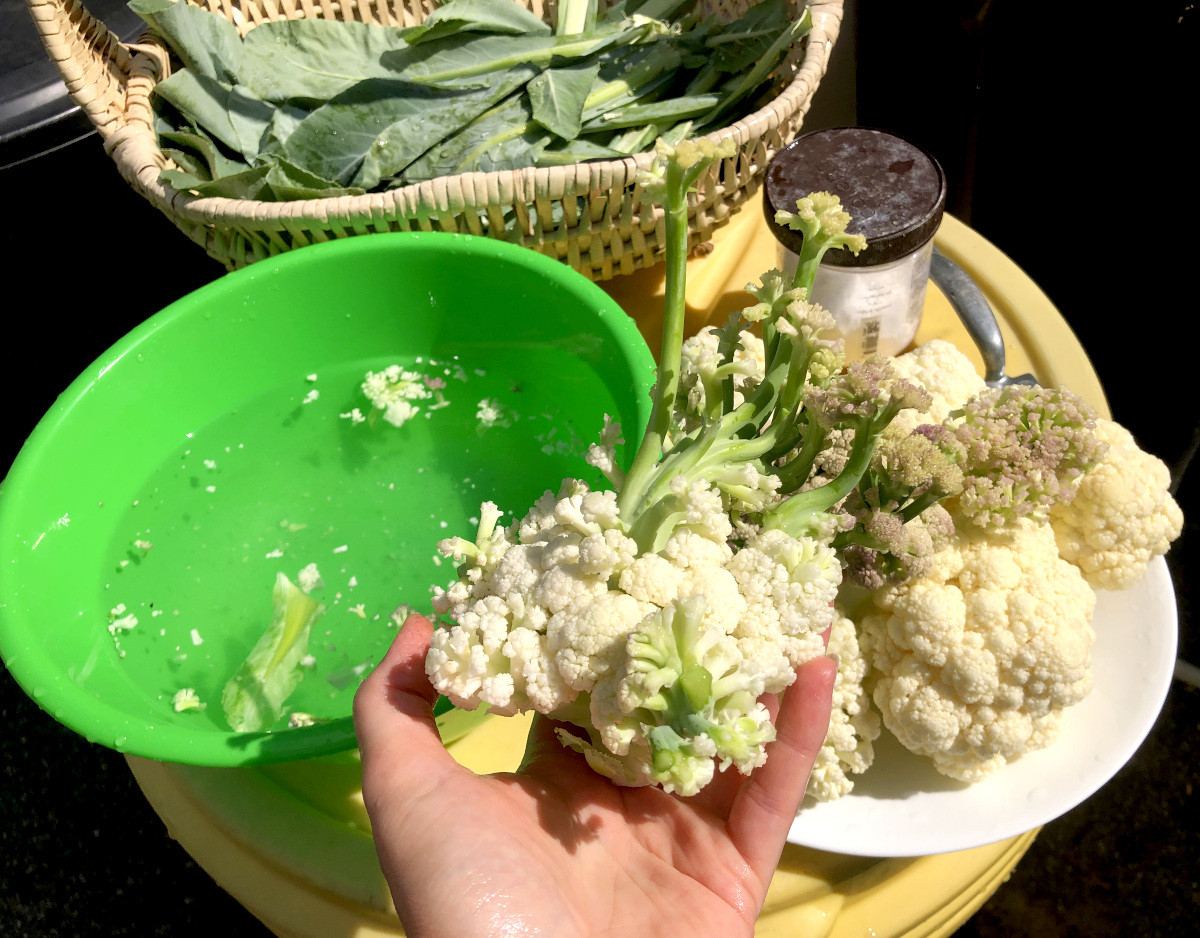
If you like more information on fruit and vegetable safety, you are welcome to visit www.cdc.gov.
I know what I put in my garden and what I fertilize with, and I always wash my produce, simply because I do not enjoy my veggies with bugs in them. This goes especially for broccoli, cauliflower, cabbage, and strawberries, to name a few. Often, slugs, caterpillars, and even insect eggs are deeply hidden in the vegetables. I, therefore, soak my veggies for about 5 minutes, then I rinse them off thoroughly before I eat them or cook with them.
Like probably all of us, home gardeners, I like to snack on my produce like peas and berries, while walking and working in the garden. Peas are protected by the pods, so those are pretty safe to eat without washing. As for the berries like blueberries and raspberries, I inspect them for bugs and then I just eat them. I do not use any chemicals and I do not spray my garden with anything, so I feel safe to eat those without rinsing while on the go.
What is the best way to clean vegetables from the garden?
The best way to clean vegetables from the garden is to use natural, edible, and safe products and solutions that one already has on hand! Rinse vegetables under running cool water. Then soak the vegetables for 5-10 minutes in vinegar mixed with water, or baking soda mixed with water, or salt mixed with water. These solutions will wash your vegetables safely, will not leave any unpleasant aftertaste or smell on your vegetables, and will remove all the unwanted residue and dirt away. After soaking, rub the vegetables again gently and rinse them off under cool running water.
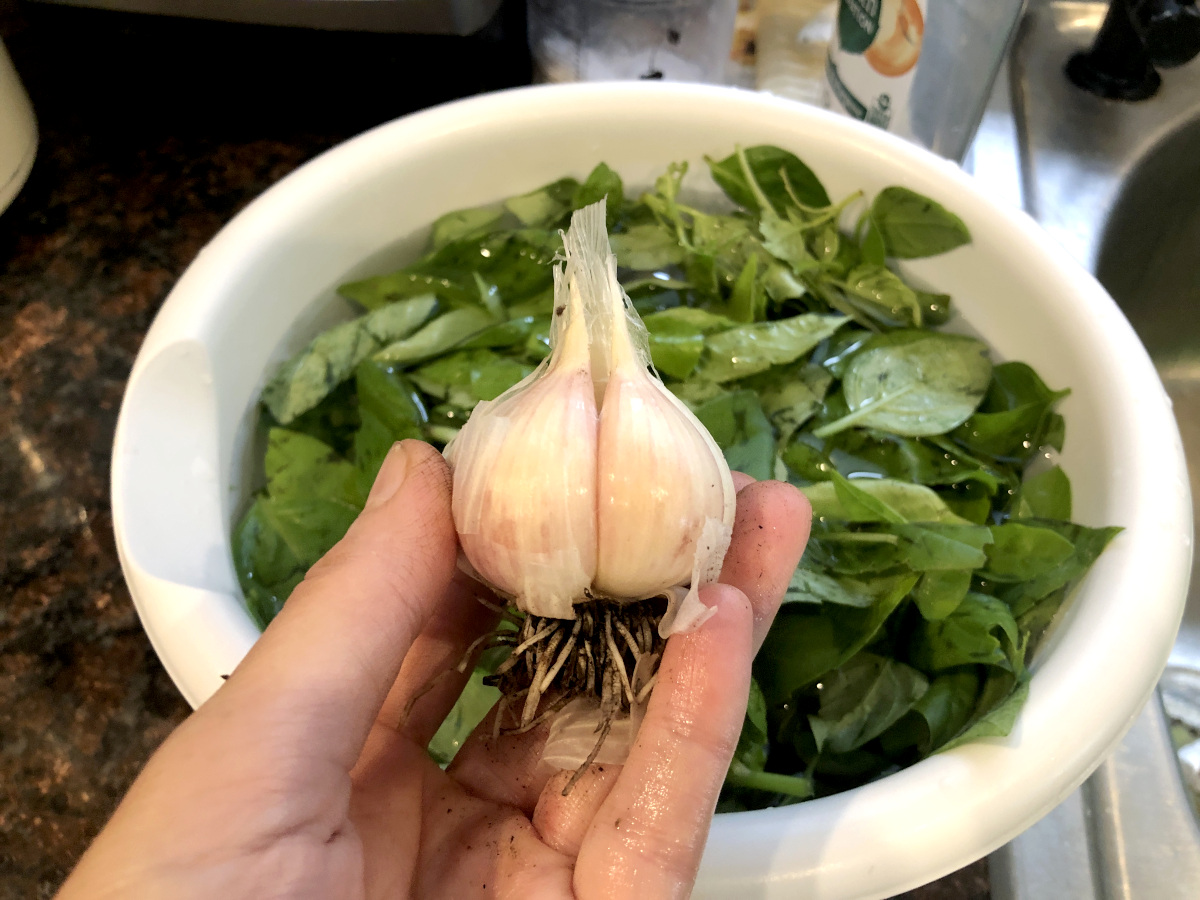
TIP: I do not discard the water in which I soak my vegetables in. I water my garden with it. I prefer to use this baking soda to soak my vegetables and then I water my garden with this baking soda and water solution. Baking soda is good for the garden and no water is wasted. If I use white distilled vinegar like this one, while soaking my veggies, I water my garden with the solution anyway. It does not have too much vinegar in it to hurt my plants. No water is wasted but well used around here.
What kind of vinegar do you use to clean food?
Distilled white vinegar is most preferred to clean food, as it contains 5% acetic acid and is colorless. However other vinegar like apple cider vinegar can also be used to clean food.
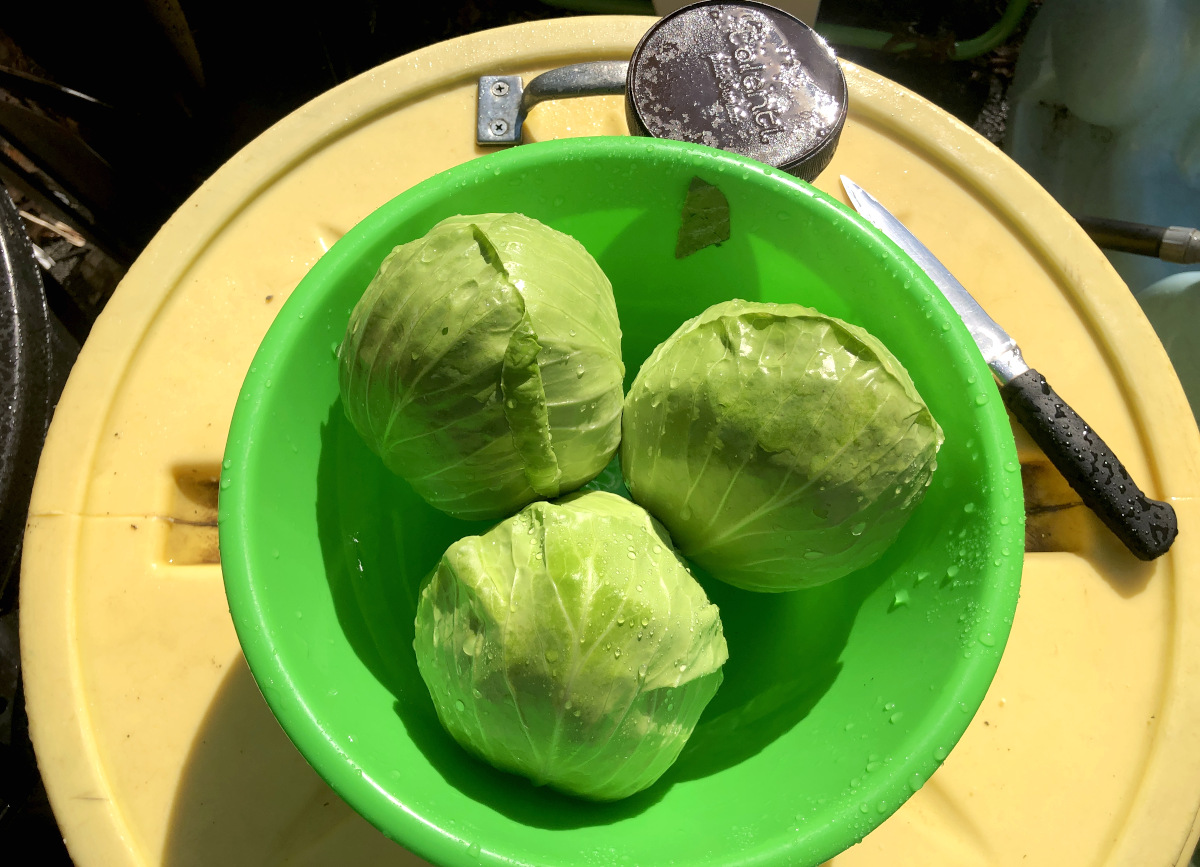
If I use vinegar to clean my produce from the garden, I go with distilled white vinegar, simply because it’s the cheapest and I usually have it on hand in bulk. I do not buy any produce wash as these are very pricy and most of them contain what I use for my veggies anyway, like water, vinegar, and baking soda as their main ingredients.
Vinegar has been used for cleaning homes for ages. And even now it is widely for cleaning households. If it can clean homes and surfaces, it can surely clean home-grown produce well. When using vinegar to clean your produce, you know what you put in your mouth and into your body and vinegar is edible, used in cooking, food preparation, and canning.
I invite you share with me and the readers, what is your favorite way to wash produce from your garden.
How can you tell if you have powdery mildew on leaves?
How to protect vegetable garden beds
How to protect strawberries from pesky pests!
